Latest News
 Montague Police Logs: April 15 to April 21, 2024
Montague Police Logs: April 15 to April 21, 2024
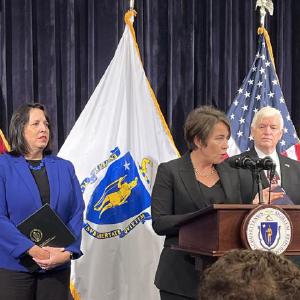 Beacon Hill Roll Call: April 29 to May 3, 2024
Beacon Hill Roll Call: April 29 to May 3, 2024

Deerfield’s Tilton Library expansion ‘takes a village’
SOUTH DEERFIELD — With tosses of dirt, dozens of residents, town officials and legislators celebrated the start of Tilton Library’s expansion Friday morning.The ceremony was more than a decade in the making and officially kicked off the project as the...

From fair to fantastic: Memorial Hall Museum exhibit shows how Green River Festival blossomed over 37 years
In anticipation of Green River Festival in June, the Pocumtuck Valley Memorial Association (PVMA) and former festival operator Signature Sounds are presenting a history of the region’s largest and most popular musical event.With a trove of...
Most Read
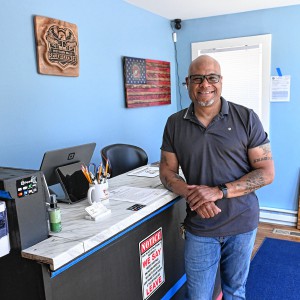 Retired police officer, veteran opens firearms training academy in Millers Falls
Retired police officer, veteran opens firearms training academy in Millers Falls
 Valley lawmakers seek shorter license for FirstLight hydropower projects
Valley lawmakers seek shorter license for FirstLight hydropower projects
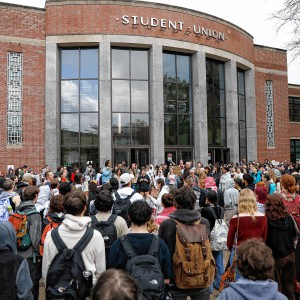 More than 130 arrested at pro-Palestinian protest at UMass
More than 130 arrested at pro-Palestinian protest at UMass
 Baseball: Caleb Thomas pitches Greenfield to first win over Frontier since 2019 (PHOTOS)
Baseball: Caleb Thomas pitches Greenfield to first win over Frontier since 2019 (PHOTOS)
 Real Estate Transactions: May 10, 2024
Real Estate Transactions: May 10, 2024
 As I See It: Between Israel and Palestine: Which side should we be on, and why?
As I See It: Between Israel and Palestine: Which side should we be on, and why?
Editors Picks
 On Mother’s Day, we’ll always have Paris: A crêpe recipe in honor of my French-speaking mother
On Mother’s Day, we’ll always have Paris: A crêpe recipe in honor of my French-speaking mother
 North Quabbin Notebook: May 11, 2024
North Quabbin Notebook: May 11, 2024
 South County Notebook: May 11, 2024
South County Notebook: May 11, 2024
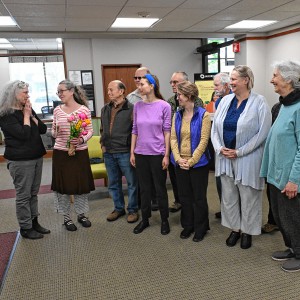 PHOTO: Benefit concert bears fruit for Sgt. Jacob Garmalo Memorial Fund
PHOTO: Benefit concert bears fruit for Sgt. Jacob Garmalo Memorial Fund
Sports

High Schools: Big sixth inning propels Franklin Tech past Smith Vocational (PHOTOS)
Leading Smith Vocational 3-2 going into the bottom of the sixth, the Franklin Tech baseball team's bats came to life. The Eagles put four across in the inning, and Kyle Begos closed things out in the seventh, allowing Franklin Tech to come away with a...
 Bulletin Board: Frontier Mother’s Day Plant Sale takes place Saturday
Bulletin Board: Frontier Mother’s Day Plant Sale takes place Saturday
Opinion

My Turn: Valuing the grave work of funeral service providers
When my parents died unexpectedly 30 days apart, I never questioned if the funeral professionals caring for my father realized that they had also cared for my mother only weeks before. Are any of us, when in the vise grip of loss and grief, engulfed...
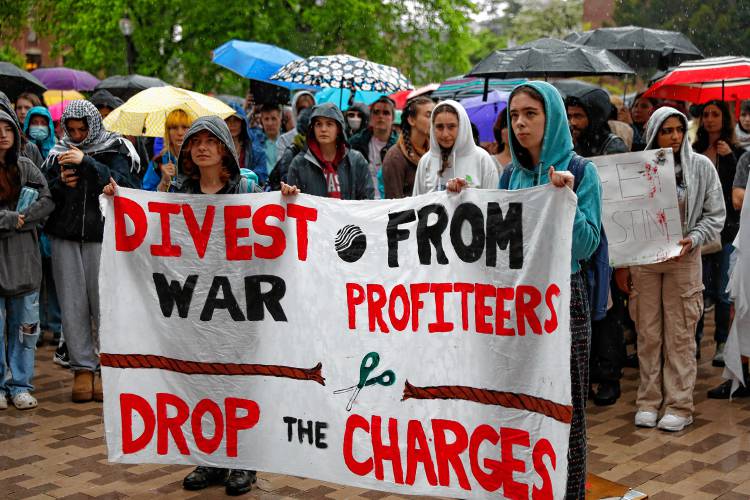 Martha Jorz: Stop supporting UMass and Raytheon
Martha Jorz: Stop supporting UMass and Raytheon
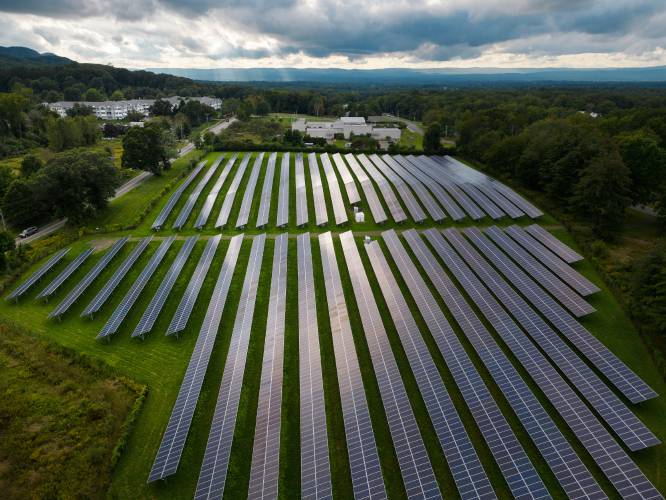 Erik Hoffner: Solar panels not a good use of farmland
Erik Hoffner: Solar panels not a good use of farmland
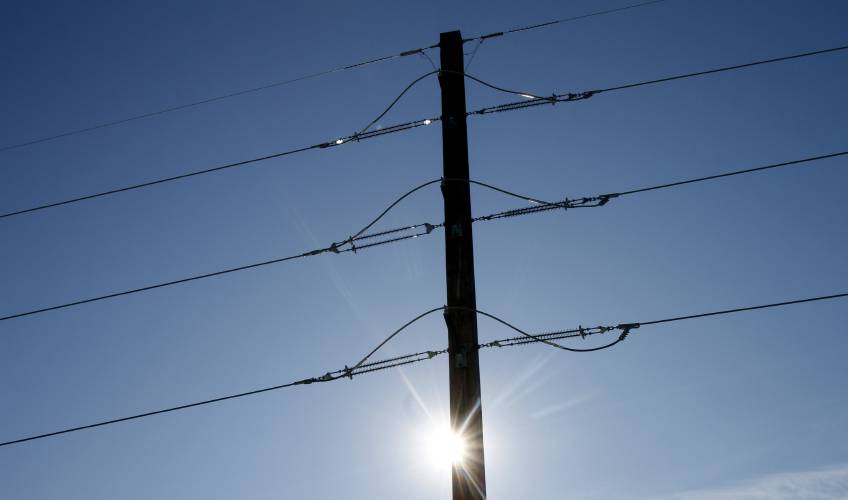 My Turn: No good answers with utilities in control
My Turn: No good answers with utilities in control
 My Turn: Blame Hamas for the suffering of Palestinians
My Turn: Blame Hamas for the suffering of Palestinians

Business
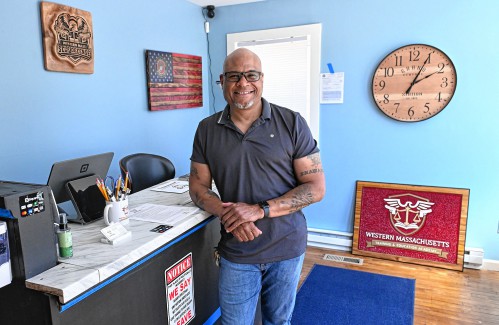
Retired police officer, veteran opens firearms training academy in Millers Falls
MILLERS FALLS — The Western Massachusetts Training & Education Academy offers an array of firearm courses taught by certified instructor and U.S. Marine veteran Leon “Lee” Laster. But you won’t find live ammunition on site.That’s because the new...
 New buyer of Bernardston’s Windmill Motel looks to resell it, attorney says
New buyer of Bernardston’s Windmill Motel looks to resell it, attorney says
Arts & Life

Valley Bounty: Fibers for farmers: Western Massachusetts Fibershed turns local ‘throw away’ wool into fertilizer pellets
Local wool for your wardrobe … and for your garden?That’s the idea behind a new project from Western Massachusetts Fibershed, an organization working to strengthen our local fiber economy, right alongside our local food economy.Peggy Hart is a core...
Obituaries
 Gladys Nartowicz
Gladys Nartowicz
South Deerfield, MA - Gladys died at the age of 92 on May 6th, 2024 at Care One in Northampton. Daughter of Alfred and Irene (Roy) Aubuchon, Gladys was born January 27, 1932. Gladys was the "matriarch" of Pine Street. She started work ... remainder of obit for Gladys Nartowicz
 Joseph Kozik Jr.
Joseph Kozik Jr.
Erving, MA - Joseph P. Kozik Jr. 84 of Erving, Ma. died Saturday (5-4-2024) at Baystate Medical Center, Springfield, Ma. He was born in Gill, Ma. on July 26, 1939 the son of Joseph and Carlena (Moon) Kozik. Joe was educated in local sch... remainder of obit for Joseph Kozik Jr.
 Stephen Kozma
Stephen Kozma
Northfield, MA - Stephen Roy Kozma, 65, of Gill, Ma passed away unexpectedly at home on May 5, 2024. He was born in Greenfield, MA on Dec. 1, 1958 the eldest of five, to Stephen (deceased in 2014) and Marita (Bassett) Kozma.After gradua... remainder of obit for Stephen Kozma
 Stephen A. Clark
Stephen A. Clark
Greenfield, MA - Stephen A. Clark, 76, of Greenfield, Massachusetts died Saturday April 27, 2024 at home. He was born in Brattleboro, VT on December 1, 1947, the son of Lloyd and Elizabeth (Rounds) Clark. Stephen was a graduate of Green... remainder of obit for Stephen A. Clark

 Longtime Orange public servant Richard Sheridan dies at 78
Longtime Orange public servant Richard Sheridan dies at 78
 From Global to Local: Mother’s Day and peace, 2024
From Global to Local: Mother’s Day and peace, 2024
 Vote on resort permit anticipated soon in Charlemont as board talks conditions
Vote on resort permit anticipated soon in Charlemont as board talks conditions
 Rowe voters to consider two-town fire district, expanding cemetery
Rowe voters to consider two-town fire district, expanding cemetery
 Following ‘no’ vote in 2023, Hawley voters will again consider resolution on state flag, seal
Following ‘no’ vote in 2023, Hawley voters will again consider resolution on state flag, seal
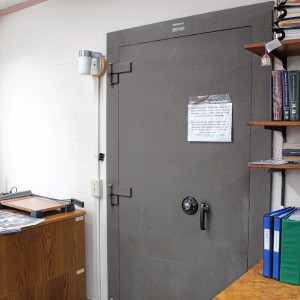 Conway adopts records policy after Historical Commission’s taking of documents
Conway adopts records policy after Historical Commission’s taking of documents
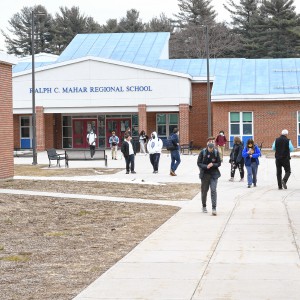 Ralph C. Mahar Regional School Honor Roll, Third Quarter
Ralph C. Mahar Regional School Honor Roll, Third Quarter
 Big turnout expected Sunday for 14th annual WMass Mother’s Day Half Marathon in Whately
Big turnout expected Sunday for 14th annual WMass Mother’s Day Half Marathon in Whately Keeping Score with Chip Ainsworth: Saratoga awaits the Belmont
Keeping Score with Chip Ainsworth: Saratoga awaits the Belmont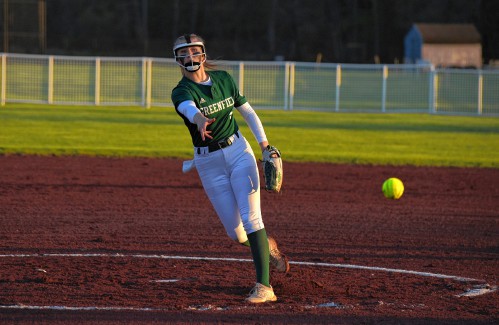 High Schools: Greenfield softball squeaks out 1-0 win over Franklin Tech in pitchers duel between Paulin, Gilbert
High Schools: Greenfield softball squeaks out 1-0 win over Franklin Tech in pitchers duel between Paulin, Gilbert Fogbuster Coffee Works, formerly Pierce Brothers, celebrating 30 years in business
Fogbuster Coffee Works, formerly Pierce Brothers, celebrating 30 years in business Goddard finds ‘best location’ in Shelburne Falls with new Watermark Gallery space
Goddard finds ‘best location’ in Shelburne Falls with new Watermark Gallery space New Realtor Association CEO looks to work collaboratively to maximize housing options
New Realtor Association CEO looks to work collaboratively to maximize housing options Sounds Local: Joni Mitchell tribute comes to Turners Falls: Big Yellow Taxi to perform ‘Court and Spark’ in its entirety, May 18 at the Shea
Sounds Local: Joni Mitchell tribute comes to Turners Falls: Big Yellow Taxi to perform ‘Court and Spark’ in its entirety, May 18 at the Shea Providing opportunity for people to grow: The United Arc of Franklin County’s annual Gardening with Steve event a highlight of spring
Providing opportunity for people to grow: The United Arc of Franklin County’s annual Gardening with Steve event a highlight of spring Speaking of Nature: Capturing my Bermuda nemesis: The Great Kiskadee nearly evaded me, until I followed its song
Speaking of Nature: Capturing my Bermuda nemesis: The Great Kiskadee nearly evaded me, until I followed its song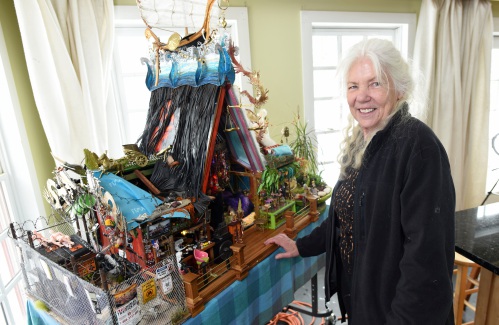 The house that therapy built: Multimedia artist Lisa Winter to display “My House” at the Wendell Meetinghouse this Sunday
The house that therapy built: Multimedia artist Lisa Winter to display “My House” at the Wendell Meetinghouse this Sunday
